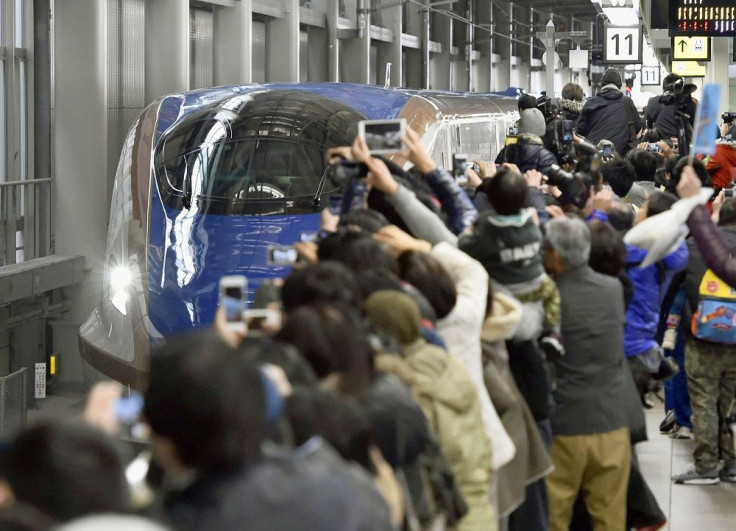New Maglev Bullet Train In Japan Runs At 603 Kph

A new bullet train in Japan that runs at 603 kilometres per hour is likely the envy of commuters among its Asian neighbours whose capital cities such as Beijing, Jakarta, Bangkok, Manila and Delhi are notorious for their hours-long traffic and bad public transport system. Operated by Japan Railway, the maglev, or magnetic levitation train, covered 1.8 kilometres in just 10.8 seconds.
The record speed was logged during the train’s experimental run in Yamanashi on Tuesday, reports CNN. It actually broke its previous record of 590 kph set on Thursday in a test track.
Prior to that, the previous record was 581 kph set in 2003 by another maglev test in Japan. The new record is 172 kph faster than the current fastest commercial maglev in China that zooms at 431 kph. It runs through the Shanghai route.
The Acela Express, operated by Amtrak in the U.S., appears like a turtle or a snail when compared to the Japanese maglevs since the fastest it could go is 241 kph, and it usually runs at half the speed.
Unlike the traditional trains that run on tracks, which requires replacement, Japanese maglevs float almost 10 centimetres above special guideways by using magnets to push the train away from the guideways. The new maglev train would ply the Tokyo-Nagoya route by 2027, cutting to just 40 minutes what would take five hours road travel.
However, notwithstanding the very impressive speed, the president of a research company in Tokyo finds the cost of development misallocation of money. Edwin Merner, president of Atlantis Investment Research Corp, pointed out that demand for bullet trains in Japan is limited.
“It’s good for growing, developing countries, but not for Japan that’s decreasing in population,” Bloomberg quotes Merner. The daily notes that despite aggressive marketing efforts by Japanese Premier Shinzo Abe, there are no takers for the maglev technology overseas.
While other Asian capital would likely want to have maglev trains, what possibly stops them from ordering from Japan is the prohibitive cost. The Tokyo-Nagoya route is expected to cost the Japanese government $46 billion, while project cost would bloat further to $76 billion if it extends the bullet train service to Osaka by 2045.
To contact the writer, email: v.hernandez@ibtimes.com.au





















